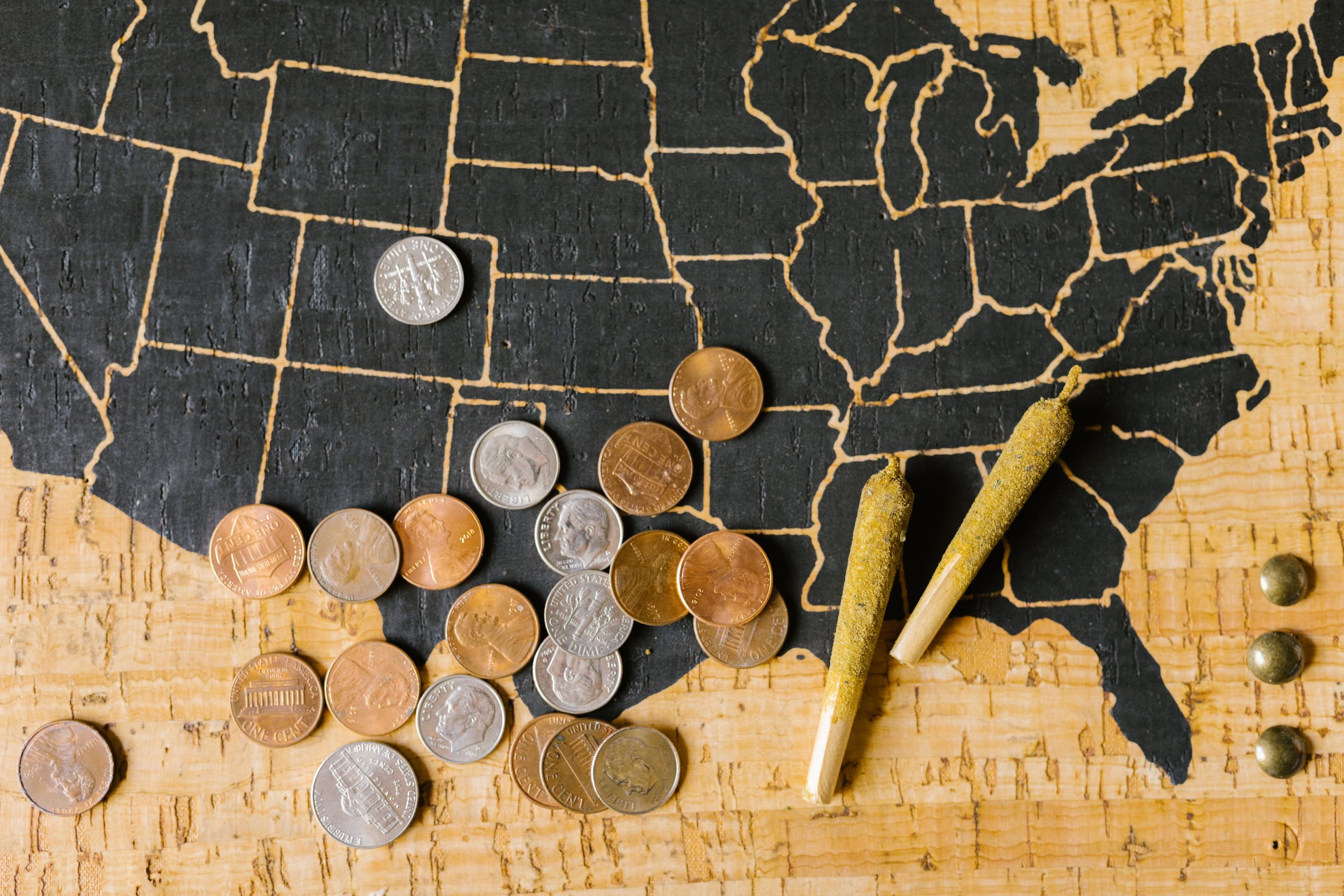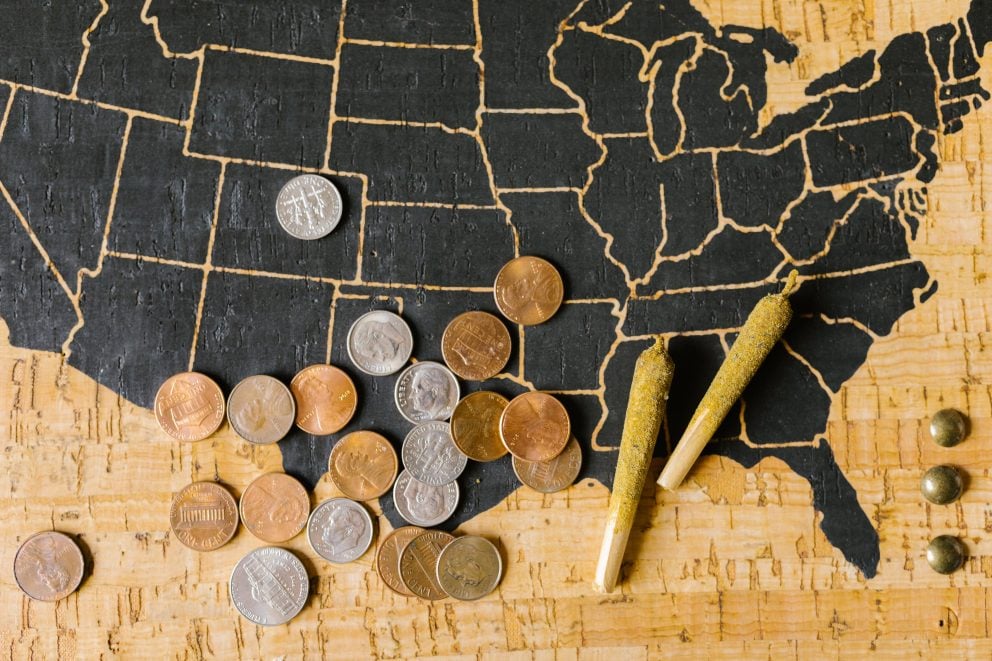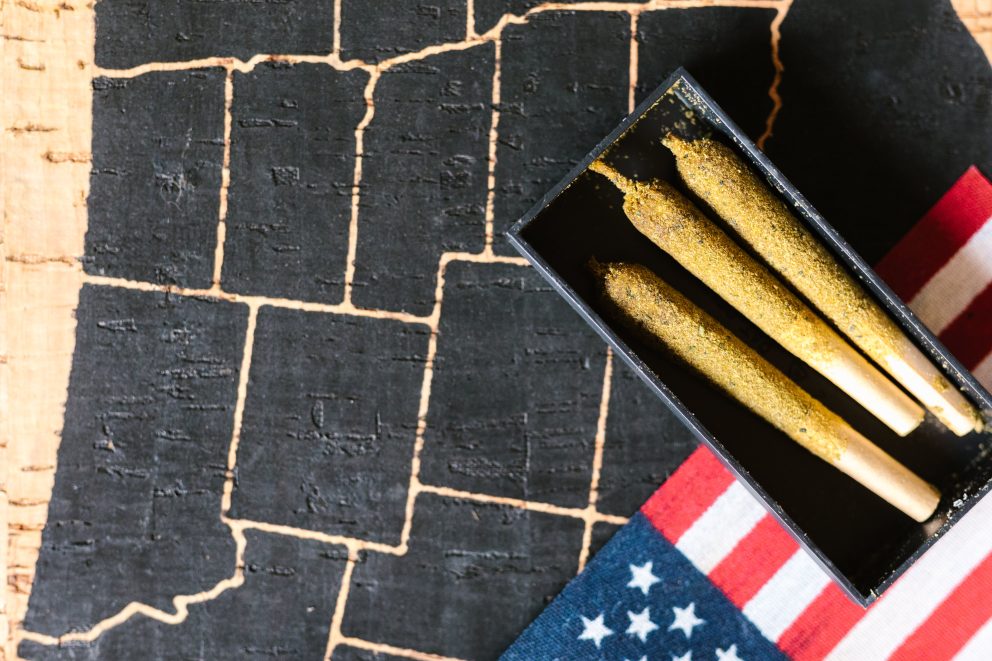
A Breakdown of How the Legalization of Weed Works Throughout the United States

Photo by RDNE Stock Project
The legalization of cannabis is becoming one of the political hot topics of our time. People have been pushing for legalization for years, but the main reason for this green revolution has less to do with the plant itself but another kind of green: money.
The global cannabis market is projected to grow from 57.18 billion (USD) in 2023 to 444.34 billion (USD) by 2030. This influx of cash can completely transform a state’s economy. With the growth of medical marijuana regulation comes testing which also adds to more research into the full potential powers of cannabis.
On the flip side, much of the argument against cannabis is the dated stigma of cannabis use. Marijuana, hash, or other forms of cannabis have been in circulation for hundreds of years and their health benefits are almost countless. After all, we have an entire system of our body known as the endocannabinoid system which engages with the various chemicals in cannabis. And yet, there are people who stringently want to prevent it from being legalized.
Currently, there are only 4 states who do not currently have some form of cannabis legalization. Weed remains fully illegal in South Carolina, Wyoming, Kansas and Idaho. The rest of the United States have, in even the most minute degree, some form of legalization. States have been exploring the potential of cannabis legalization which can not only be a boost for the local economy but a major boon to the health of residents. There are three main forms of legalization.
Apply for a Medical Marijuana Card Online Today
Join over 100,000 patients who have chosen Green Health Docs as their medical cannabis doctors. We have a 99% approval rate and offer a 100% money back guarantee!
What Are the Main Forms of Cannabis Legalization in the United States?
There are three major forms of cannabis legalization:
- Decriminalization – Reducing the criminal charges and severity of cannabis possession
- Medical Marijuana Legalization – This legalizes cannabis for medical use and prescription by doctors
- Recreational Marijuana Legalization – This officially legalizes cannabis throughout the state and opens up dispensaries to legal adults of age.
How Do Cannabis Laws Work?
Laws governing cannabis in America can be a bit confusing. After all, cannabis is still illegal federally across the country but many states have legalized it in those three specific ways. However, there is not a magic lever that turns cannabis from illegal to legal.
What can delay cannabis legalization is certain structural changes that must be made to the local infrastructure before a state can open itself up to legal cannabis sales. States can often start off slowly. There is also a ton of logistical and bureaucratic red tape that can delay things. Even when cannabis is legalized, it can take years for it to take off.
Again, part of the sticking point of legalization can be puritanical attitudes, but another can be improperly written laws establishing an entirely new industry. Many bills can die in the local legislature because there hasn’t been adequate attention to what will happen if they’re passed or simply not a way to realistically logistically implement medical or recreational marijuana sales.
Let’s dive deeper into these three forms of legalization so you can better understand marijuana law in the United States.

Photo by RDNE Stock Project
What is Marijuana Decriminalization?
The simplest legal change on the state level is decriminalization. Decriminalization downgrades possession of cannabis from a felony to a lesser charge or in many cases a minor offense. While not exactly legalization, decriminalization does mean someone is more likely to face a ticket or fine rather than jail time for smoking cannabis or being found with weed.
As a controlled substance, marijuana can carry heavy charges in some states, even mandatory sentences. For example, West Virginia still requires mandatory jail time for even possession of small amounts of cannabis.
The major driving force behind decriminalization is that many cannabis based criminal cases have been racially biased. Basically, police can often target or disproportionately charge people of color. With mandatory sentences or unfair prosecution, local law enforcement can arrest and charge some people with jail time while letting others off with only a warning.
In the United States, Black Americans are 3.64 times more likely to be arrested than their white counterparts for cannabis based crimes. Many states have addressed the fact that the scent of marijuana is not enough legal grounds for a search to preserve people’s privacy protection.
President Biden even signed an executive order to address cannabis disparities on the federal level. He pardoned people charged with possession of cannabis in Washington DC. While not all states can agree on legalization, some cities in states without legalized cannabis have stepped up and decriminalized cannabis within their city limits.
For example, Miami, Tampa, and Palm Beach in Florida have all decriminalized cannabis within their city limits.
Decriminalization, given its simplicity, is often the first step in the legalization process by eliminating unnecessary charges. This does not quite legalize cannabis but it downgrades the criminal charges significantly.
How is Medical Marijuana Legalized?
Cannabis legalized for medical use is the second simplest form of legalization. Medical marijuana requires establishing a fair amount of bureaucracy.
How will prescriptions be issued and how will legal purchases be made? This requires building an infrastructure for medical marijuana and a whole new set of regulations to manage the taxes, distribution, and this whole new weed industry.
For example:
- What government agency or department will manage the new medical program?
Oftentimes, states will establish a marijuana board or a division devoted to managing the program.
- What health conditions are eligible for a cannabis prescription?
States often decide which medical conditions qualify for cannabis prescriptions. This varies from state to state. Some states can be fairly lax like Oklahoma where any medical condition can receive a prescription while in some states only 2-3 conditions are approved for cannabis. Often conditions that cannot be treated by other means, intense pain or nausea are often the collectively approved conditions for cannabis. This does vary from state to state.
- How can patients consume weed?
Cannabis can become legal even for recreational use but smoking weed or edibles may remain illegal within the state.
These questions and more must be answered with proper legislation in order for laws to successfully pass through state congress. Most states vary in their implementation and the structure of their specific medical marijuana programs. However, these laws can define the future of cannabis in their state. If cannabis works medically, legalization can often expand to include recreational cannabis.
A popular initial step to medical cannabis legalization is the approval of CBD or low-THC cannabis for medical patients in the state. This allows for a lower stakes legalization process as a test.
The 2018 Farm Bill federally legalized CBD across the country but some states were early adopters of CBD. Low-THC helps states get a feel for how cannabis might roll out without having to worry too much about heavy cannabis use as a concern.
Florida dipped its toes into cannabis waters with a low-dose THC program. The success led to the legalization of standard-strength cannabis products. Again, insufficient planning or oversight of potential issues are often what kills bills before they can get passed into law.
Additionally, once cannabis is legalized this doesn’t automatically mean people can simply go to their doctor and get a script for cannabis. How doctor prescriptions and recommendations are managed, who can legally open a dispensary, regulation over proper dosages, medical conditions that can receive prescriptions, and testing must all be decided from above.
The bureaucracy over how prescriptions are managed and even who can open a dispensary and where they can are all decisions that must be factored into law. If not, there are risks of having to reintroduce legislation and let’s be honest, passing legislation can be a slough and take forever.
It can take as long as a couple of years for cannabis to shift from legalized to available for sale. Even when cannabis is legalized there can be delays before patients can go to dispensaries and pick up their prescription products.
Once medical cannabis is thriving in a state there can be movements towards recreational cannabis.

Photo by RDNE Stock Project
How is Marijuana Legalized Recreationally?
The final form of cannabis legalization is for recreational use which essentially makes cannabis fully legalized throughout the state. It converts cannabis from a controlled substance to a regulated product like cigarettes or alcohol.
Of course, you’ll still need to be of legal age and provide proper identification before you can purchase. There are also specific laws that must be established before dispensaries get opened to the public. Some potential delays can be the separation between medical and recreational dispensaries, the logistics and the structure of the law.
Even with recreational cannabis there are still legal limits over who can grow and sell cannabis and even how much one is legally able to purchase. Once cannabis is legal recreationally, it is legal throughout the state.
There can often be benefits for medical marijuana patients over recreational cannabis consumers. For example, medical marijuana patients don’t have to pay the taxes associated with purchasing cannabis. Medical patients can also potentially grow cannabis, purchase and carry more, and have more access.
Potential delays to the passing of recreational cannabis can be the licensing processes for dispensaries which are often fairly in-depth. Also, the logistics over who can open dispensaries, how they will be run, and the general infrastructure of which agency will manage recreational cannabis must be decided.
Once cannabis is legal recreationally, it’s often bundled with alcohol and tobacco and managed by that department or sometimes it’s viewed like a prescription drug and managed by the same organization.
Legalization also can shift the state as non-residents may be able to access cannabis and that can shift the amount of people in the state using cannabis. Once cannabis is legal recreationally, it can transform the state. With states like California considering decriminalizing other drugs like psychedelics that can often be an additional step after recreational cannabis use.
Final Thoughts
Legalizing cannabis is no small feat. There are a lot of behind-the-scenes legal changes that need to be made and decisions that must happen on the state’s congressional level. Part of the stalls, delays, and issues with legalization can be issues with the language, a lack of adequate planning or even political debates.
Now that you know more about how legalization works you can better support legislation that aligns with your beliefs. After all, you can contact your representatives and local government to support these laws.
If you want to get started with medical marijuana by getting your medical marijuana card or recommendation Green Health Docs offers help to make the process simple, seamless, and help you get your prescriptions.
 This article has been reviewed by Dr. Anand Dugar, an anesthesiologist, pain medicine physician and the founder of Green Health Docs. Graduating from medical school in 2004 and residency in 2008, Dr. Dugar has been a licensed physician for almost 20 years and has been leading the push for medical cannabis nationwide.
This article has been reviewed by Dr. Anand Dugar, an anesthesiologist, pain medicine physician and the founder of Green Health Docs. Graduating from medical school in 2004 and residency in 2008, Dr. Dugar has been a licensed physician for almost 20 years and has been leading the push for medical cannabis nationwide.
